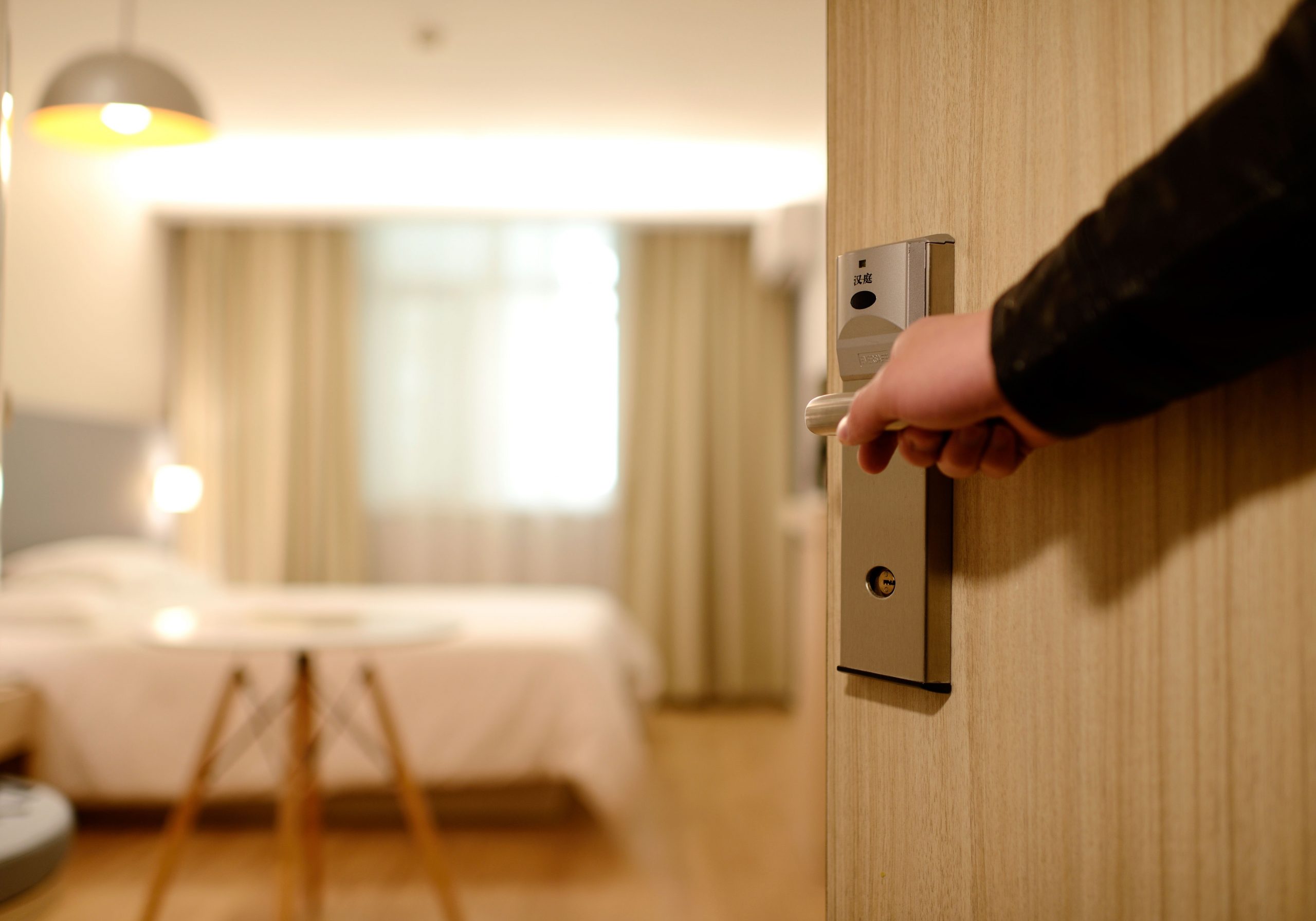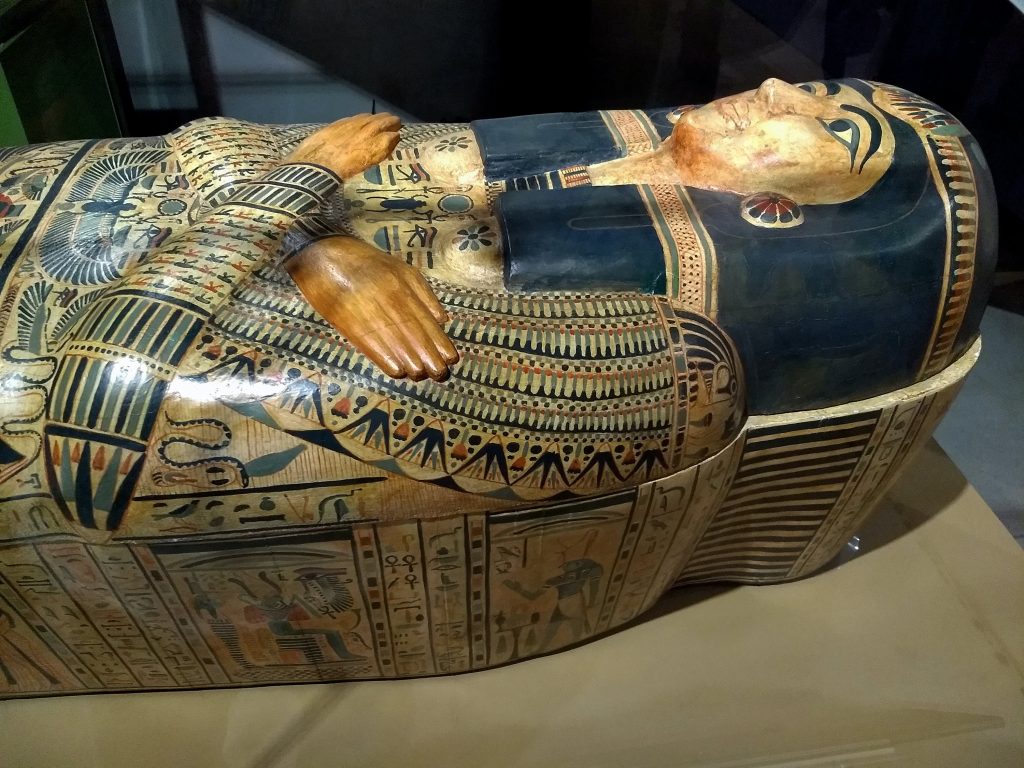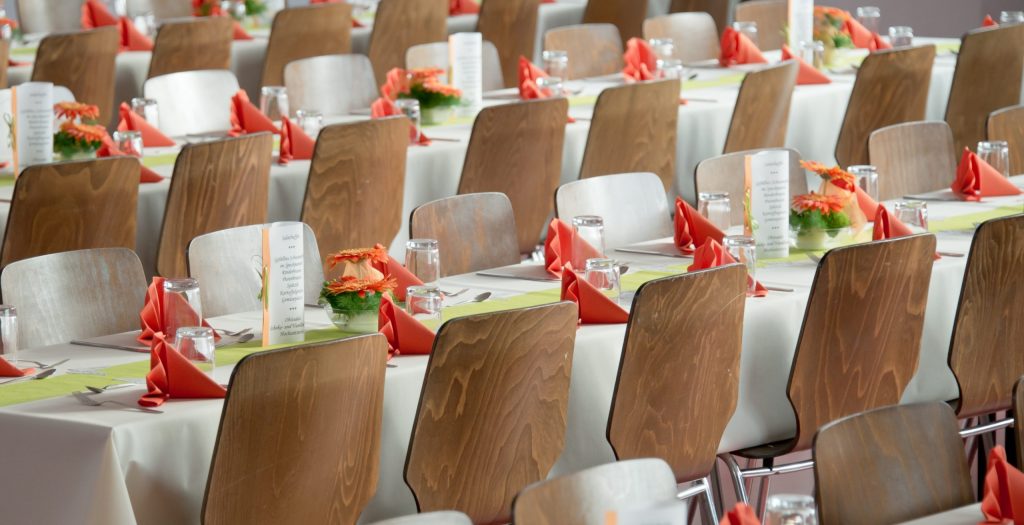Surfing TV channels or scrolling through social media, consumers have been hit with one message since the beginning of the year: Stay home, stay safe. As much as that piece of advice was essential for containing COVID-19, it has hurt the global hospitality industry.

Since March, Orascom Hotels Management, Four Seasons Hotels and Resorts, the Ramses Hilton, and other Egyptian properties have seen occupancy rates and revenues collapse. That has forced management to rethink strategies.
According to Colliers International’s MENA Hotels Quarterly, occupancy rates in Cairo have nosedived 67 percent year-on-year in 2020. Hurghada rates are down 57 percent, Sharm El Sheikh 55 percent, and Alexandria 47 percent.
World Tourism Organization figures show tourist arrivals to Egypt dropped 62.3 percent in the first half of 2020, while tourism receipts plunged 90.4 percent in the second quarter after the government suspended international flights.
“Even with international flights and tourist spots open in the second half of the year, pickup in key tourism locations has been slow and hotels have been operating below 50 percent capacity,” said Colliers. Weak occupancy rates continued into the third quarter despite airlines resuming flights to Egypt. Alexandria and Sharm El Sheikh saw slightly better performance from the second quarter but remained significantly lower than the same quarter last year, Colliers said.

Are we there yet?
For Orascom Development Egypt, performance has been swiftly improving since the beginning of June, following the easing of restrictions, says CEO Omar El Hamamsy.
While acknowledging a full recovery from the pandemic will take time, he explains that the current uptick in local travel reinforces the group’s view that when people feel safe, demand will return quickly.
“From a business perspective, the company is continuing to implement several cost-saving initiatives across its hotels and continues to increase efforts to create local demand for all destinations until international travel recovers,” he says.
According to consolidated financial results for the first nine months of 2020, Orascom Development Hotels’ global portfolio included 7,150 rooms, of which 47 percent were operating. The group reported revenue down 60.7 percent to $53 million, yet maintained a positive gross operating profit.
According to Khaled al-Anany, Minister of Tourism and Antiquities, each hotel must test all staff, install disinfection equipment, screen guests’ temperatures and provide quarantine areas. All guests must register online. As per the government decree, hotels restrict occupancy to 50 percent of capacity since June.
More than 95 percent of guests at the company’s El Gouna resort are from Egypt, according to a statement. Tour operators’ flights, which used to represent 70 percent of the hotel’s occupancy, have not resumed.
The hotel group saw occupancy and revenue start to rebound in the third quarter, with relaxed government measures. Revenues reached $5.75 million, compared to $770,000 in the second quarter and occupancy rates went from 1 percent to 19 percent, compared to 81 percent in the third quarter of 2019.
“Right now, the next wave of thinking is how we take this and accelerate it even further throughout the next year, especially in areas that are not facing the sea,” says El Hamamsy.

Staying afloat
Some major players are more concerned with short-term challenges than long-term recovery. “How do you convince customers in the middle of a pandemic that it’s safe to travel or stay in a hotel?” asks Regional Vice President and General Manager at Four Seasons Hotel Cairo Dimitrios Zarikos.
Egypt has experienced a slump in tourism since the onset of the coronavirus pandemic. The Ministry of Tourism and Antiquities, in cooperation with the Ministry of Civil Aviation, has launched several campaigns to revive the industry. However, a severe second wave of the virus sweeping the United States and Europe prompted more lockdowns, curfews and travel restrictions.
Despite Egypt being open for travelers during the second half of the year, the Four Seasons’ two hotels in Cairo have seen “very low occupancy rates,” says Zarikos, adding that properties in Alexandria and Sharm El Sheikh were doing much better over the summer.
“We focused on building business,” he says. “We marketed for staycations. However, not so many Egyptians are interested in that today.”
Today, occupancy levels are running in single digits in winter, a prime tourist season. Retirees and older travelers, the majority of the leisure travel group, are unlikely to make long-haul trips to Egypt, Zarikos notes.
His main concern through early 2021 is the safety of guests and employees, preserving capital, and quickly identifying market segments ready to travel.
Asked about the hotels’ response to the second COVID-19 wave in Egypt, Zarikos says, “We do not want to take any risks. We are following government guidelines, but even if the government regulations are relaxed, we will be following our own guidelines. Safety will be with us for the next couple of years.”
He does not expect a strong rebound, at least through June 2021. “Only a few points up, a few points down in occupancy rates,” he says.
The Egyptian Center for Economic Studies predicts 150,000 tourists will arrive this month, generating $45 million, with 3 million more in the first half of next year.
Improved tourism rates depend on an effective vaccine to treat coronavirus and the removal of international travel restrictions, as 90 to 95 percent of the country’s tourists fly in from abroad.
Zarikos believes occupancy rates next year will be at least 40 percent below what they were in 2019.

Cup half-full
At the Ramses Hilton in Cairo, Cluster General Manager at Ramses Hilton and Hilton Cairo World Trade Center Residence, Soha El Torgoman, encourages investment in caliber training during slow business times. “The sector employs a wealth of trained and professional workers who play a major role in providing distinguished services to tourists,” she says.
As Egypt reaches the second wave of COVID-19, “we are well-prepared,” El Torgoman says. In June, Ramses Hilton and Hilton Cairo World Trade Center received the operational health and safety certificate required by the Ministry of Tourism and Antiquities to operate.
“Once we got the state’s certificate, we were ready to deploy Hilton’s CleanStay and EventReady global programs providing new standards for hotel cleanliness and disinfection,” El Torgoman says. “Precaution is our only shield, it is the driving force of the market.”
Hilton CleanStay program that Ramses Hilton follows ensures the availability of disinfecting stations, wipes and hand sanitizer throughout the property. Additionally, all areas are cleaned at scheduled intervals, including hourly maintenance of high-touch places such as elevators and bathrooms, switches and electronic controls, handles and knobs, and bathroom surfaces. Once rooms are disinfected, they are sealed until the next visit.
Tables and chairs also are altered to facilitate social distancing and increased hygiene standards, according to El Torgoman. The hotel also offers biodegradable, disposable dishware and flatware upon request. Grab & Go, pre-plated and individual portion options are offered as alternatives to open breakfast and buffet service.
El Torgoman sees the pandemic as changing the travel industry forever, with an ongoing emphasis on first-rate hygiene standards. “It will continue being a trend because now we have the coronavirus, and tomorrow we might have something else.”
“Business has become more challenging these days,” says El Torgoman. “What takes up the most headspace is continuously thinking of new ways to reassure guests that our hotel applies heightened levels of cleanliness and disinfection, while continuing to provide world-class services, so that Ramses Hilton remains to be a destination of choice for guests, and a catalyst for the overall revival of the tourism sector in Cairo.”
She mentions that targeting domestic clients and local markets seems like the only way to go until international tourism rebounds.
There is a silver lining in the midst of all this uncertainty and some signs of better days to come. The announcement that a vaccine may be ready in the first quarter of 2021 is “groundbreaking,” she says, and people will resume traveling as long as they are vaccinated and that will allow airlines to relax travel restrictions.
Acceptance vs. toleration
Egypt’s government reopened this crucial sector steadily and cautiously. They announced incentive packages, such as reduced landing and ground service fees for planes and offering discounts on tickets to museums and historical sites. The government also is circulating videos showing social distancing measurements in airports, hotels, and tourist attractions.
Airports in Egypt started to operate in July in line with the gradual lifting of the partial lockdown, yet numbers are still not close to satisfactory, Zarikos says. “What worries me the most is that we have almost assumed there will be a vaccine and that it will be effective and distributed to the masses, but what if that doesn’t occur? Then what happens?” he asks. People already are questioning themselves before they take a business trip since they can do a lot virtually, he notes, “a trend that is not so good for hotels.”
Four Seasons Hotels are looking to introduce video conference facilities at properties around the world. “We will invest in the capacity to do that in more than one room,” says Zarikos. “There will be a fundamental change in corporate travel.”
On a similar note, El Hamamsy says Orascom is preparing for the worst-case scenario but hoping for the best. “Egypt is ready to bounce back very nicely after COVID-19. We are already seeing and having discussions with tourism authorities, organizations and charters that are very keen to come to Egypt when the situation stabilizes or improves,” he says.
However, what worries him most is the sluggish easing of regulations that could better enable companies to react during a challenging time. “There remains a heavy backload of regulations and laws that are not as useful today as they were before, but the government is working hard on that,” he notes.
El Torgoman’s biggest concern is attracting future generations to employment opportunities in the tourism and hospitality industry.
“The tourism industry was the first to get severely hit with the crisis. I’m worried the young generation will see this industry unfavorably,” says El Torgoman. “Those graduating this year will probably start careers in banking, pharmaceuticals or digital transformation.”







